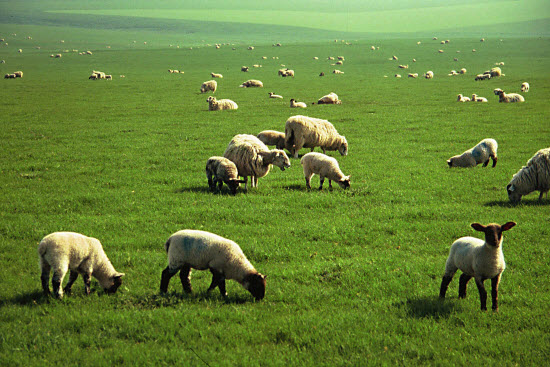
It”™s New Year”™s resolution time again. For some of your participants, that may mean weight loss goals. Don”™t worry; there”™s no list of weight-loss tips below to pass along to your classes.
But I have been thinking about eating behaviors.
Grazing is one eating behavior that can impact weight significantly. I”™m convinced that grazing is a type of binge eating, and that sugar may prompt it.
Grazing is characterized by “repetitive eating of small or modest amounts of food in an unplanned manner.” Because the behavior has yet to be fully defined, clarified and classified, there are some vague aspects to it.
Most of the research on grazing has been done on obese individuals, but my doctoral research and clinical experience indicate that non-obese people also graze.
Is Grazing a Form Of Binge Eating?
Binge eating doesn”™t always fall into distinct binge episodes. In my study on women with binge eating disorder, participants were asked to log their food intake for 8 weeks and circle any binge eating episodes.
In the logs of several participants, and on more than one occasion, an entire day”™s food intake had been circled — one big circle around the whole page.
Binge eating typically involves eating more food in a specific time period than most people would under similar circumstances. It also involves a lack of control — being unable to stop eating or control how much or which foods.
DSM-5 Criteria
The DSM-5 cites a 2-hour time period for a binge — but only as an example, not a strict criterion. If we expand the binge period to 24 hours, grazing could definitely fit the criterion.
Grazers may also experience a lack of control, along with other behaviors typically linked with binge eating — eating lots of food when not hungry; eating alone due to embarrassment over the eating; feeling disgusted, depressed or guilty afterwards.
Comments by the women who circled entire pages showed they felt their eating was out of control on those days. The amount they ate during each “grazing” might have been small or modest as defined above, but the overall amount of food eaten over the day was large.
So What Does All of This Have To Do With Sugar?
We”™ve just made it through what might have been (for some of your participants) a high-sugar holiday season. The effects of sugar on our eating, though, don”™t always disappear on January 1.
My dissertation suggested that standard criteria for addiction could be seen as “explaining” binge eating disorder, with sugar as the addictive substance.
I would modify this explanation for grazing: it isn”™t limited to sugar addicts. As covered in a previous post — endorphins (beta-endorphin) triggered by sugar could, and would, inhibit the feeling of satiety in the main satiety center of the brain (the VMH). So sugar can make us want to eat more — not just at the moment but even days later.
As also covered previously, endorphins change food preferences toward sugars and fats, which may not only contribute to weight gain, but also increase the endorphin in a self-perpetuating cycle.
What Should Participants Do?
If any of your participants are struggling with grazing while trying to lose weight, they might need to change some things in their diets. Let”™s keep this ridiculously simple for now.
One step is to stop eating sugar. The other is to eat protein throughout the day. Both could help them stop grazing and stick with their weight loss resolutions.
Sometimes, research language can be revealing and amusing. In animals (don”™t run away yet!), sugar triggers beta-endorphin — linked with “continuance of ingestion and sustained consumption once begun.”
Is it just the geek in me, or does that sound to anyone else like grazing and the inability to stop eating?
- New Year’s Resolutions: A Sugar Addict’s Survival Guide - April 15, 2024
- Motivation vs. Enthusiasm - October 12, 2023
- Why Exercise Shouldn’t Be Just One Thing - November 9, 2022
